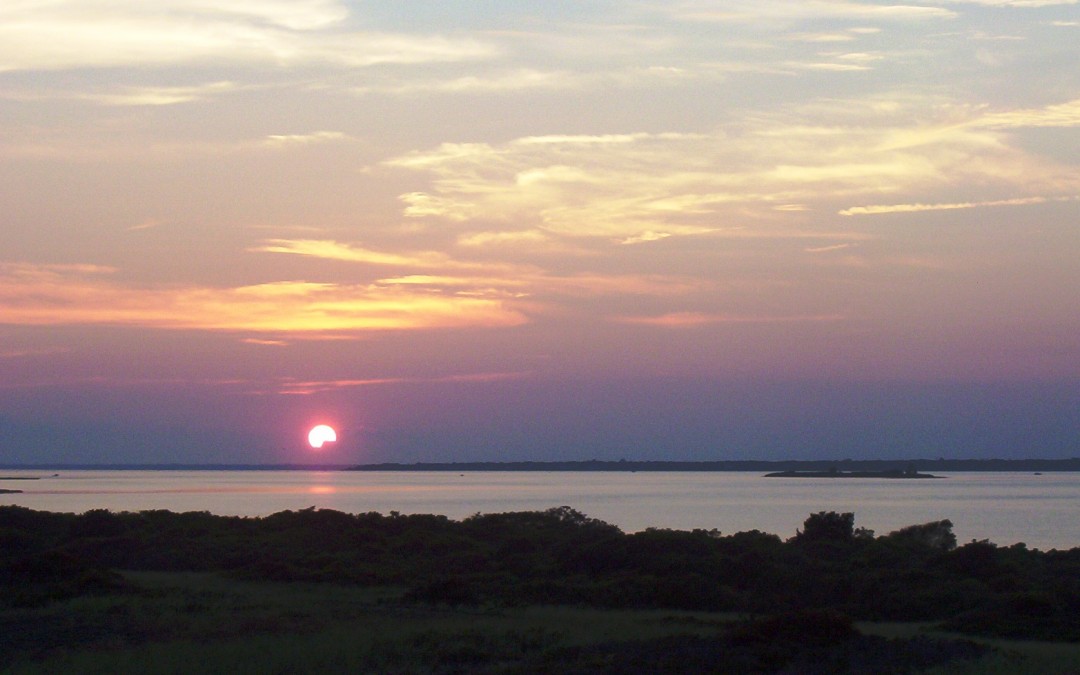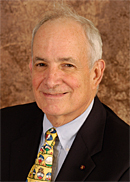Dear SoMAS Students, Staff, Faculty, Alumni, and Friends:
No matter the origin of the phrase and with no negative context, we do “live in interesting times,” and it is certainly applicable to SoMAS during 2016.
Stony Brook University’s Sustainability Studies Program joined SoMAS as a welcomed and integral partner. This Fall was the first full semester working together and we have made a concerted effort to integrate our undergraduate programs. We are also beginning to explore creating a Master’s program in Sustainability Studies.
Our dean, Minghua Zhang, stepped down after six very successful years in order to undertake new and exciting challenges. The search for a new dean is underway and progressing nicely.
Faculty and graduate students have once again made significant contributions to the research endeavor including attaining highly competitive grants and publishing in high-impact journals.
Nolwenn Dheilly, Lesley Thorne, Laura Wehrmann, and Michael French were the first recipients of the Minghua Zhang Early Career Innovation Awards. Congratulations to them and many thanks to our generous sponsors for recognizing excellence and creating this fund.
SoMAS graduated about 14 Ph.D.s and 12 MS students in Marine and Atmospheric Sciences. One hundred percent of the 2015/2016 MA students in the Marine Conservation and Policy Program completed their degrees in August. At the undergraduate level, the Sustainability Studies Program graduated 45 majors while Environmental Studies graduated 24. Some 42 students completed majors in our various Marine and Atmospheric Sciences programs.
We welcomed five new members to the SoMAS team in 2016. Donna Selch joined us as a lecturer and Christina Ozelis as an advisor in the Sustainability Program. Charise Kelly is now our grants coordinator and Hilary Wolfskill is an administrator for the Clean Water Center. Ginny Clancy, formerly dedicated to Sustainability Studies, is now the SoMAS Educational Programs Coordinator.
Distinguished Professor Cindy Lee and Professor Mary Scranton retired as did Professor Jim Hoffman. Cindy and Mary were part of the backbone of SoMAS for many years. Jim was one of the founding members of the Sustainability Studies Program. Mary still comes in nearly every day as she assumes the role of a Toll Professor. Carol Dovi, our much appreciated Graduate Program Coordinator, also retired. While we are sorry to see them go, we wish them much happiness as they embark on new endeavors.
The presidential election has roiled the rather placid waters of academia as we assess what it means to the world of environmental research and education. While there hasn’t been much disclosed concerning the incoming administration’s agenda for research and development, we can anticipate that Federal support and funding for the environment may decrease or be redirected. That means the mission of SoMAS is ever more relevant: we and our sister marine and atmospheric sciences institutions must assume greater responsibility for undertaking critical environmental research and bring the results of that work to the public. When people believe, politicians will follow.
We are not entering totally uncharted waters. The 1980s brought regulatory reform with a concerted effort to de-emphasize and overturn environmental regulations with concomitant reductions for environmental research. The U.S. EPA was decimated, as was the Department of the Interior. The National Oceanic and Atmospheric Administration refocused its programs. Sea Grant was fortunate to survive. But, by the late 1980s, the public attitude toward the environment changed, as did the environmental politics. The shift was driven by numerous environment crises including the identification of the ozone hole, coastal hypoxia as a global problem, the EXXON VALDEZ oil spill (lack of response preparedness), the Islip Garbage Barge, ocean dumping and marine debris. The latter three were regional problems that played out on the world stage. As a result, there was a resurgence in Federal investment. While we certainly don’t desire any environmental crises, be assured, significant environmental issues will arise during the coming years and the importance of understanding them and their impact on society will once again be a high priority. SoMAS with its outstanding faculty and staff are clearly up to the challenges ahead.
We must create our own opportunities as we move forward: recast our traditional research with different thrusts — perhaps to support infrastructure, the economy, public health and national security and to individually and institutionally leverage new relationships with business/industry, foundations, and environmental groups.
The ocean sector contributes roughly two percent to GDP. While this percentage has remained relatively stagnant for many years, there is potential for growth, particularly if energy development in any form takes off. Ocean planning will become essential even if the new administration fails to embrace the concept. Strategic development will be required as competition for ocean resources and space in our Exclusive Economic Zone grows and becomes increasingly contentious. SoMAS, in partnership with New York State, can be an influential and significant force in this process.
Never before has environmental education been so important. We need to inspire the next generation concerning the complexities of the ocean-atmosphere system and how we live in harmony with it. “In the end we will conserve only what we love, we will love only what we understand, and will understand only what we are taught,” Baba Dioum, a Senegalese conservationist and forestry engineer, observed in 1968. This is the time to reenergize and broaden our graduate and undergraduate programs.
We must be vigilant, creative, and ready to embrace new opportunities.
It has been a pleasure to work with the students, staff, and faculty at SoMAS while serving as interim dean. Here is wishing all a great holiday season and a wonderful New Year.






